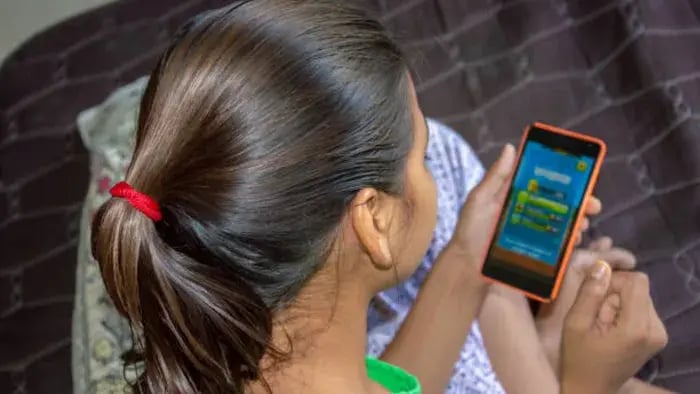- Create Screen-Free Zones at Home
- Set Daily Routines That Naturally Limit Screen Use
- Offer Fun Alternatives That Compete with Screens
- Use Screens with Purpose, Not Just for Passing Time
- Be a Gentle Role Model Without Strict Rules
Introduction

Taking away screen time can feel like a daily tug-of-war, one side pulling for more cartoons, games, or scrolling, and the other side trying to make space for healthier habits. If you have ever tried taking the phone or remote away, you know it can lead to resistance, boredom, or even arguments. The key is to introduce better options that feel just as exciting. When kids feel involved and see screen-free time as something fun, not a punishment, they’re more likely to cooperate. Simple changes in routine, small rewards, or shared family time can help shift the focus without the usual complaints.
It also helps to notice when and why screen time stretches too long. Is it filling a gap when your child is bored? Or is it becoming a habit during meals or just before bed? Once you spot the patterns, it becomes easier to break them, gently and effectively.
Here are practical ways to reduce screen time that respect your child’s needs and make your home feel more connected. With a little planning and creativity, screen-free moments can feel natural, not forced, and even enjoyable for the whole family.
5 Smart Ways to Reduce Screen Time Without Complaints

It’s natural for kids and teens to love their gadgets; they’re entertaining, familiar, and often a quick way to unwind. But too much screen time can start replacing sleep, movement, meals, and honest conversations. That’s when you know a gentle shift is needed.
The challenge is to do it in a way that doesn’t make your child feel punished or bored. When screen time is reduced suddenly or without explanation, it usually leads to resistance. But when you make the change feel natural, fun, and fair, your child is more likely to adjust without complaints. Here are five smart, realistic ways to reduce screen time that work.
Create Screen-Free Zones at Home
Start by choosing places in your home where screens are simply not allowed. The dining table, bedrooms, or bathrooms can be a good start. Instead of saying “No screens here,” talk about what these spaces are for, like relaxing, eating together, or sleeping well. Keep books, puzzles, or calming toys in these areas so they don’t feel empty. According to UNICEF, once your child understands that certain places are for rest or real connection, it becomes easier to follow the rule without arguments.
Set Daily Routines That Naturally Limit Screen Use
A strong routine often does the work for you; set times for homework, outdoor play, meals, and bedtime. When the day is full of other activities, there is simply less time left for screens, and kids follow it without even noticing the change. It’s helpful to use visual schedules or simple checklists that your child can see and follow. As per the study done by the National Institutes of Health, when children know what’s coming next, they feel more in control, which makes transitions smoother.
Offer Fun Alternatives That Compete with Screens
The quickest way to reduce screen time? Make real-life activities more fun. Plan something exciting that your child enjoys, like cooking together, building a fort, playing a board game, or painting. It doesn’t have to be complicated, and the goal is to help them find joy in activities that don’t involve a screen. Let your child pick the activity or lead the way. According to NIH MedlinePlus Magazine, when they feel involved in the choice, they’re more likely to stick with it. Over time, these simple moments become part of their routine.
Use Screens with Purpose, Not Just for Passing Time
Not all screen time is the same; watching a movie together as a family, video-calling relatives, or using educational apps can feel meaningful. But mindless scrolling or flipping through videos without direction often takes up the most time. As per a study done by, Int J Behav Nutr Phys Act. 2021, encourage your child to think before switching on a screen. Ask: What are you going to watch? For how long? Why now? These gentle check-ins help your child become aware of their habits and reduce screen use without you having to say “no” all the time.
Be a Gentle Role Model Without Strict Rules
According to FSSAI, your child is always watching, even when you don’t realise it. If you’re glued to your phone during meals or always checking emails at bedtime, they’ll learn that it’s normal. Try to put your own devices away during family time, and talk openly about why. Use your habits as a quiet way to lead the change.
Conclusion

When done with care, reducing screen time can open up space for creativity, bonding, and better rest. By making small, thoughtful changes, you’re teaching your child how to enjoy screens without depending on them too much. These smart steps won’t bring overnight results, but they build a foundation where screen-free time feels good, not forced. And when your child feels respected and involved in the process, they’re more likely to embrace it with fewer complaints and more confidence.
Her love for storytelling began with reading her grandfather’s speeches, where Tarishi saw the power of words in creating lasting memories. Combining her passions for food and writing, she has turned her life into a fulfilling path of sharing stories that celebrate flavours and how food brings communities together.
The views expressed are that of the expert alone.
The information provided in this content is for informational purposes only and should not be considered a substitute for professional medical advice, diagnosis, or treatment. Always seek the advice of your physician or another qualified healthcare provider before making any significant changes to your diet, exercise, or medication routines.
References
https://pmc.ncbi.nlm.nih.gov/articles/PMC8447784/
https://magazine.medlineplus.gov/article/7-tips-for-managing-screen-use
https://www.nhlbi.nih.gov/health/educational/wecan/reduce-screen-time/tips-to-reduce-screen-time.htm
https://www.unicef.org/india/parentingtips/ten-tips-cutting-down-screen-time-during-covid-19
















